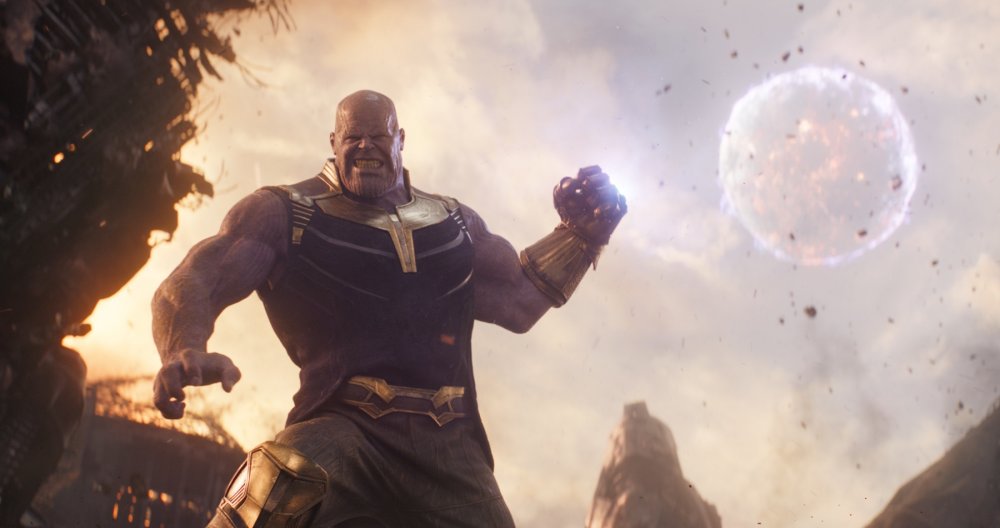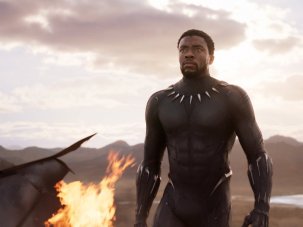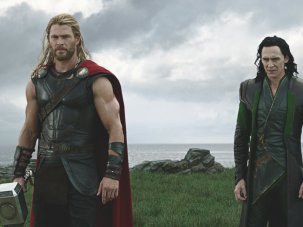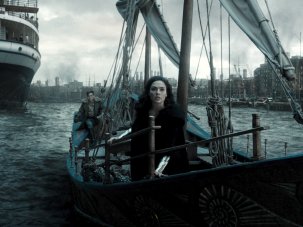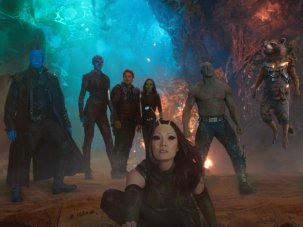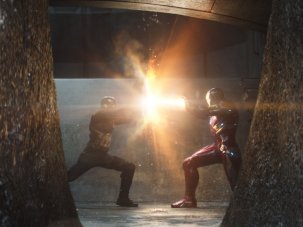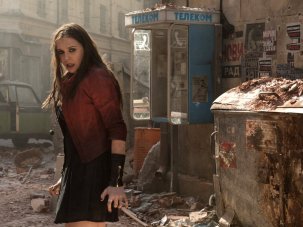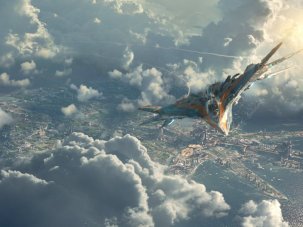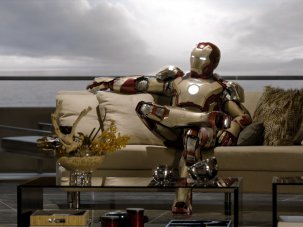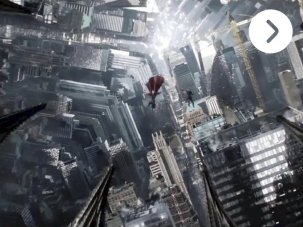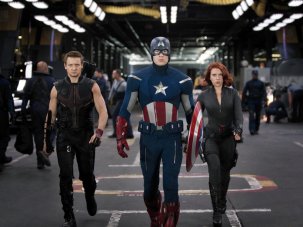The interconnectedness of Marvel Comics’ universe has been a distinguishing mark of the publisher since the water-vs-fire battle of the Sub-Mariner and the Human Torch in Marvel Mystery Comics #8-9 (1940). In the early 1960s, writer Stan Lee and artists Jack Kirby and Steve Ditko (among others) revived Marvel’s key characters – bringing Kirby’s WWII icon Captain America back to life, for instance – and invented a new range of bizarre, flawed heroes. The so-called Marvel Universe evolved quickly, predicated on the notion that each of the publisher’s titles was set in the same world. Huge, all-in crossovers became customary with Fantastic Four Annual #3 (1965), where pretty much every Marvel hero and villain showed up at the wedding of Mr Fantastic and the Invisible Woman.
USA 2018
Certificate 12A 149m 9s
Director
Cast
Tony Stark / Iron Man Robert Downey Jr.
Thor Chris Hemsworth
Bruce Banner / Hulk Mark Ruffalo
Steve Rogers / Captain America Chris Evans
Natasha Romanoff / Black Widow Scarlett Johansson
James Rhodes / War Machine Don Cheadle
Doctor Strange Benedict Cumberbatch
Peter Parker / Spider-Man Tom Holland
T’Challa / Black Panther Chadwick Boseman
Gamora Zoe Saldana
Nebula Karen Gillan
Loki Tom Hiddleston
Vision Paul Bettany
Wanda Maximoff / Scarlet Witch Elizabeth Olsen
Sam Wilson / Falcon Anthony Mackie
Bucky Barnes / Winter Soldier Sebastian Stan
Heimdall Idris Elba
Okoye Danai Gurira
Eitri Peter Dinklage
Wong Benedict Wong
Mantis Pom Klementieff
Drax Dave Bautista
Groot (voice) Vin Diesel
Rocket (voice) Bradley Cooper
Pepper Potts Gwyneth Paltrow
The Collector Benicio Del Toro
Thanos Josh Brolin
Peter Quill / Star-Lord Chris Pratt
Secretary of State Thaddeus Ross William Hurt
Shuri Letitia Wright
[1.90 : 1]
UK release date 26 April 2018
Distributor Disney UK
dis.ne/avengers-infinity-war
► Trailer
Since Jon Favreau’s Iron Man (2008), Marvel’s cinema arm has been patiently merging its output on this model, forced to work around the inconvenience of not owning the film rights to some of its core characters. Each film has been salted with elements of a larger plot, which is finally tied together in this epic space opera. It’s not so much a crossover as a mosaic, and it sets out – among other impossible tasks – to shuffle the colourful, light-hearted hijinks of James Gunn’s Guardians of the Galaxy films and Taika Waititi’s Thor: Ragnarok with the angstier, despairing, politicised tone of the Russo brothers’ Captain America sequels, while at the same time reconciling the science-fictional and magical worlds of Iron Man, Black Panther, the Hulk and Dr Strange.
The macguffin bringing it all together is the Infinity Gauntlet, added to the Marvel Universe by writer Jim Starlin, creator of the groovy-chinned purple thanatophile Thanos. The gauntlet imposes a plot structure that’s like something out of a 1940s serial – such as The Adventures of Captain Marvel, which featured a different Captain Marvel from the character whose future screen debut is teased here – whereby a villain has to get hold of the components of a superweapon over many chapters. The heroes fight valiant battles and escape from various perils, until a final chapter in which the great gadget is unleashed but the villain thwarted. This is the scheme of Infinity War, up to a point where it breaks radically with convention.
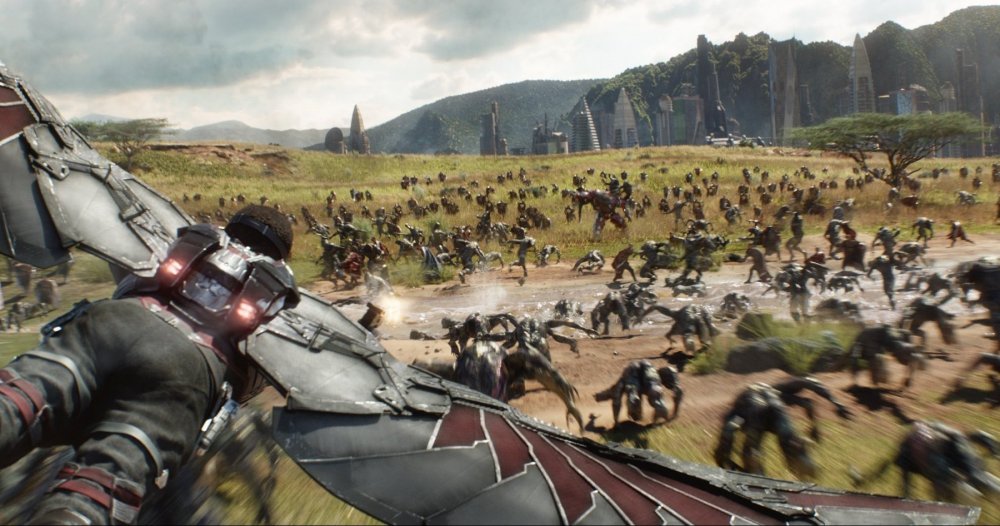
With so many characters – not just headline heroes, but also their supporting casts – to be found room for, it’s no surprise that this is an extra-long instalment of the franchise, and a few lines have to be thrown in to account for absences. A peril of crossover comics, evident in some of Starlin’s cosmic trips, is that no one gets to carry the story, and sheer vastness makes for page- or screen-filling spectacle that’s simultaneously amazing and uninvolving.
After so many films and with some of the canniest casting on record, Marvel has managed to create screen versions of its heroes so vivid that the recasting common in the Batman or Spider-Man franchises would be a real problem. Whenever the universe-spanning storyline threatens to flag or become schematic, there is always some neat character interplay – especially in the quadrant of the action teaming Robert Downey Jr’s Iron Man, Benedict Cumberbatch’s Dr Strange, Tom Holland’s Spider-Man and Chris Pratt’s Star-Lord in a contest of male ego and geekery – that allows a seam of Marvel humour to survive in a fairly genocidal (and, in its implications, genre-ocidal) sea of story.
Elsewhere, Thanos – emoted by Josh Brolin, augmented by CGI – strains to be the villain the saga merits, with one great moment (tears sliding into the grooves on his face) but too much standing about speechifying. A situation whereby a self-sacrificing goodie begs a loved one to kill them to save the universe recurs so often it seems lazy repetition rather than a theme.
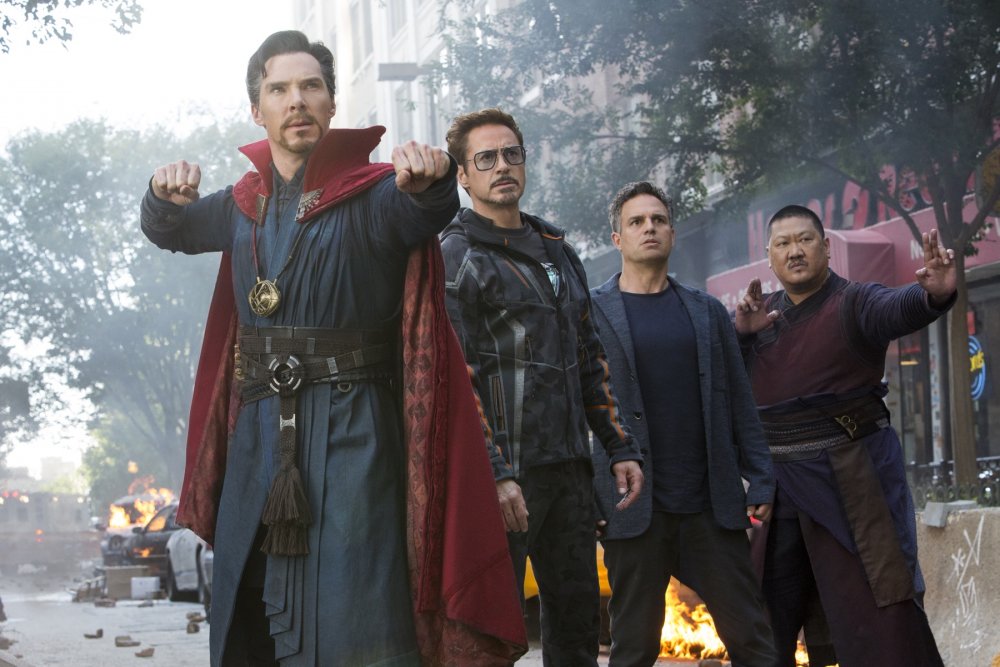
Given that the plot motor is Thanos’s worry that the universe is overpopulated, sly self-awareness is shown as the filmmakers embrace drastic solutions to the problems of braiding multiple franchises into one – though some jiggery-pokery with Dr Strange’s time-juggling amulet (and Cumberbatch’s knowing line readings) suggest any shocking plot developments can be rolled back later, especially with sequels in development for characters who seem to be permanently written out in a tragic finale that’s also an old-fashioned cliffhanger. The weight of ten years’ worth of Marvel films requires screen time for fan-favourite characters/performances and plot threads giving each something to do: Thor’s quest to get a new hammer, Bruce Banner’s spat with his Hulk alter ego, Steve Rogers’s outlaw status. Not all have the space to tie up carried-over plots, and some regulars – Scarlett Johansson’s Black Widow, Sebastian Stan’s Bucky – barely get a look-in.
On this scale, soap opera and comedy skit bytes can only go so far, and Infinity War manages a succession of double-page-spread awe that sells the cosmic saga: a marvellous trompe l’oeil shot as a camera move reveals the sorry state of Thanos’s rebel adoptive daughter Nebula, the by-now-obligatory mass urban destructions and battles with monster hordes on open planes, and gorgeously imaginative outer-space vistas. Kudos also for the witty/chilling envoi: “Thanos will return.”
-
The Digital Edition and Archive quick link
Log in here to your digital edition and archive subscription, take a look at the packages on offer and buy a subscription.




